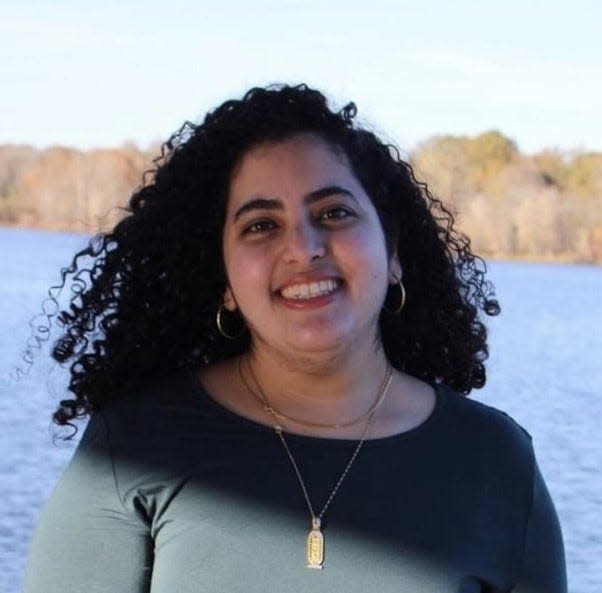This is what MENA means and why it matters to citizens | Opinion
In the 1910s, a Lebanese Maronite Christian man named George Dow was denied citizenship in the U.S. because he was not white. He appealed.
In 1915, his appeal sealed the fate of millions of immigrants thereafter: Arab Christians – the majority of Arabs living in the U.S. then and also now – would be classified as white on federal paperwork, and therefore, gain citizenship to the United States.
Despite this, there were still stressful measures Arab Christians and Muslims had to endure in the United States, such the 1929 lynching of an Arab woman in Florida by a white mob, Hollywood portrayals of Christians and Muslims from the Levant and North Africa as savages and brutes, and continued segregation policies that push Arabs to live in certain areas of a city.
Hear more Tennessee Voices: Get the weekly opinion newsletter for insightful and thought provoking columns.
I've seen too many cases of people being treated as second-class citizens
This 1915 court case, then, has had such an impact on communities coming from North Africa and Southwest Asia because we realized that even with citizenship, you can still be a second-class citizen.

During COVID, a fellow Nashville Copt told me, “I went in everyday to see my mom. I’ve worked in a hospital before. I know how doctors and nurses treat our people, our pain. I made sure to be over their heads every day to make sure she survived.”
Another Coptic student told me that they were in Centennial Park with ice cream, and perhaps she and her friends were being loud, and a white woman shouted at them, “Terrorists!”
I hear dozens of stories of violence in schools from white supremacists against Egyptian/Arab kids, or when administrators and teachers don’t take Arab parents’ concerns seriously. I’ve seen parents lose cases that they should have won.
I know a Coptic man who had an infection in his finger after a botched surgery, and the doctor denied him any support while the man was in pain for his mistake. I know Arab children who have been targeted by the police, and I know that very few government-funded organizations serving the most vulnerable — unhoused individuals, survivors of assault or domestic violence, drug dependent people — have staff who speak Arabic and therefore our people, in desperate need of resources, are denied life-saving support. So what’s at stake is our lives.
Sign up for Latino Tennessee Voices newsletter:Read compelling stories for and with the Latino community in Tennessee.
Sign up for Black Tennessee Voices newsletter:Read compelling columns by Black writers from across Tennessee.
MENA classification is about accountability and dialogue
A few years ago, a group of activists came up with the category “MENA” (Middle East and North Africa), so as to include a plethora of identities in that region from Copts to Kurds to Persians to Turks.

MENA encompasses multiple languages, races, genders, religions and ethnic-religions, and ages and generations. Now, a group of organizations called the National Network of Arab American Communities (or NNAAC), of which Elmahaba Center is a part of, is trying to push through the federal government that this category be prescribed to all federal documentation.
The campaign is called #CountMENAIn. Ally-organizations like Vanderbilt University Medical Center have already launched their effort to accurately collect health data for MENA communities, so as to improve their own research methods and support the Nashville community as a whole, knowing that health is interwoven. We want to see the same level of social responsibility and accuracy from other institutions like MNPS, Rutherford County Schools, MDHA, Metro Arts, local nonprofits, and as a whole Metro Nashville government.
This is a very momentous time for various communities – Copts, Kurds, Arabs – to know that our differences are our strengths, and that accountability builds stronger communities, that we should not shy away from accountability and responsibility, that true citizenship is dialogue.
To support this effort, because we want Tennessee to be well-represented, please make a public comment in the federal registry with the Office of Management and Budget. Our goal is to get 10,000 public comments nationwide in the registry. Join us. It takes two minutes!
More:Visit the NNAAC website where you can make a public comment.
Lydia Yousief is a local Nashville person who attended Vanderbilt University and graduated in Middle Eastern Studies. She then studied at University of Chicago’s Center for Middle Eastern Studies where she completed her master’s thesis on Coptic identity-making through pilgrimage. Today, she is a founder and the current director of Elmahaba Center in South Nashville. Elmahaba Center is a nonprofit organization supporting Arabic-speaking peoples through community responsive programming like ACT Class, Tutoring, College Prep, weekly livestreams, diaper banks, food distributions and meals, and community networking.
This article originally appeared on Nashville Tennessean: This is what MENA means and why it matters to citizens
